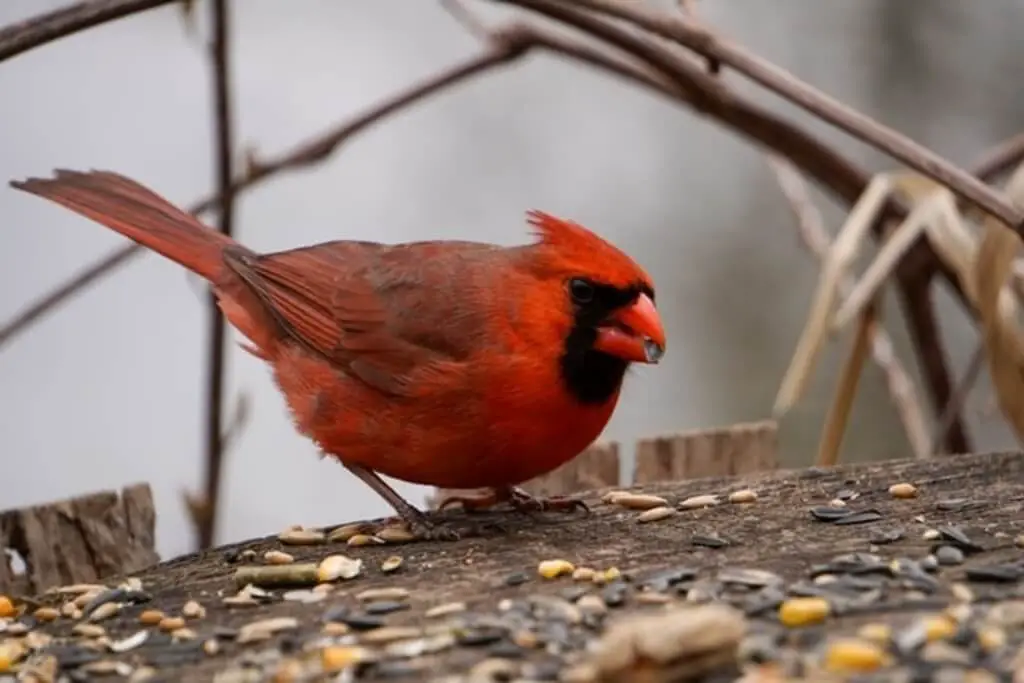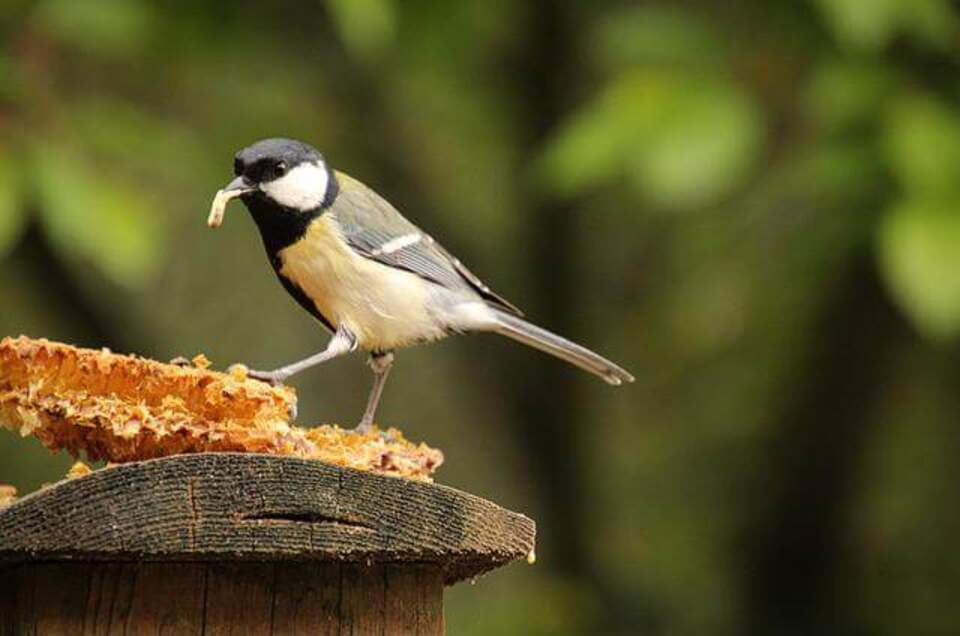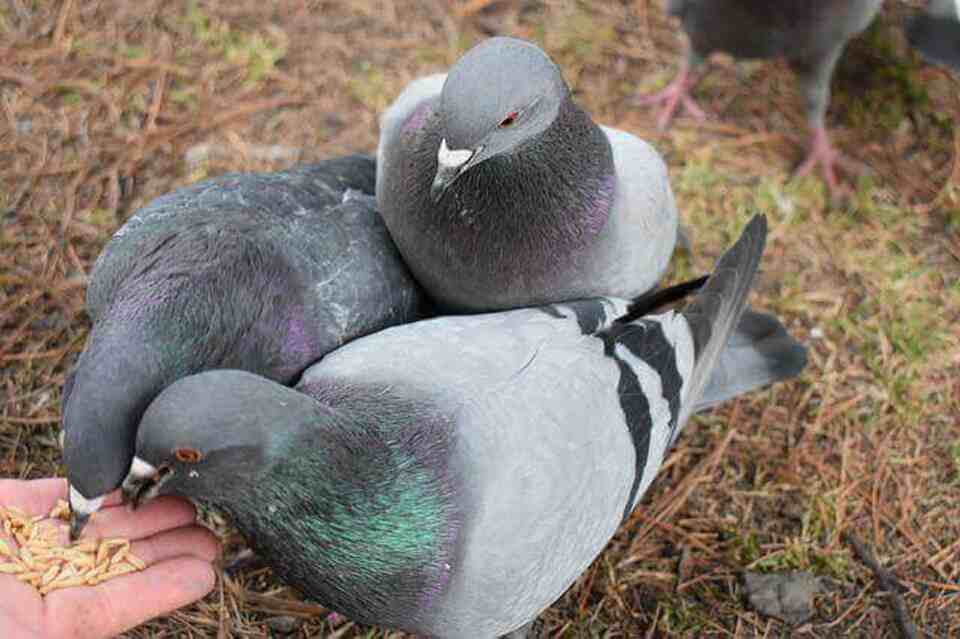Ever wondered, how long can birds go without food? The answer varies depending on the species and environmental conditions. Smaller birds, like finches, may only survive a day or two without food, while larger birds can last up to several days by relying on their fat reserves. In this article, we’ll explore how different bird species manage food shortages and the survival strategies they use to cope.
Table of Contents
- 1 How Long Can Birds Go Without Food?
- 2 The Importance of Water for Bird Survival
- 3 How Long Can Baby Birds Survive Without Food?
- 4 How Long Can Different Bird Species Go Without Food?
- 5 How Do Birds Survive When Food Is Scarce?
- 6 How to Care for Your Pet Birds During Food Shortages
- 7 Conclusion: Bird Survival and Our Responsibility
- 8 Author
How Long Can Birds Go Without Food?
When it comes to food deprivation, different bird species have varying survival abilities. The duration of time a bird can survive without food depends on factors such as its size, metabolism, and environmental conditions. Generally:
- Most birds: In general, birds can survive for approximately 1-3 days without food, but they will become weak and sluggish during that time.
- Hummingbirds: Due to their extremely high metabolism and small size, they can only survive 3-5 hours without food before their energy reserves deplete.
For many birds, the energy they consume is vital to maintain essential functions like flying, hunting, and staying warm, especially in cold climates. If they don’t find food within a short window, they risk becoming too weak to function properly.
Why Can’t Birds Go Longer Without Food?
Birds are equipped with incredibly fast metabolic systems, meaning they burn energy at a rapid rate. Unlike humans and some mammals, birds don’t have large fat stores to draw from during food shortages. This makes them particularly vulnerable when food is scarce. Once a bird’s energy supply is exhausted, it becomes more susceptible to physical weakness, inability to fly, and even death if food is not replenished quickly.
Birds are also warm-blooded creatures, which requires a continuous supply of energy to maintain body temperature. In colder climates or seasons, their energy demands increase significantly, making it even harder for them to go long without food.
The Importance of Water for Bird Survival
In addition to food, water is another critical resource for birds. While food sustains them, water is essential for digestion, temperature regulation, and overall health. Without it, birds are unable to process food properly, which can lead to rapid deterioration of health.
How Long Can Birds Go Without Water?
- Most birds: Most birds will only survive 1-2 days without water. The need for hydration is even more urgent in warmer climates or during hot weather, where dehydration can set in more quickly.
- Hummingbirds: Due to their fast metabolism and high energy expenditure, hummingbirds can only go 3-5 hours without water before becoming dehydrated.
Without water, birds’ bodies become stressed, and they can experience severe physical symptoms like lethargy, difficulty flying, and sometimes death. Just like with food, maintaining access to fresh water is vital for birds’ survival, especially during droughts or extreme weather conditions.
How Long Can Baby Birds Survive Without Food?
Baby birds are much more vulnerable than adults due to their smaller size, undeveloped systems, and higher need for nutrients. Their survival is heavily dependent on frequent feeding.
How Long Can Baby Birds Go Without Food?
Baby birds require regular feeding every 3-4 hours during their first few weeks of life. They grow rapidly, and their metabolism is extremely fast. However, in certain emergency situations, baby birds can survive up to 24 hours without food, especially if they are hydrated.
- Orphaned Baby Birds: If you find an orphaned baby bird, it’s crucial to provide food or seek help from a wildlife rehabilitator immediately. Although they may survive for a short while without food, prolonged starvation can lead to permanent damage or death.
Baby birds, especially those not yet fully feathered, are extremely vulnerable to food and water deprivation. If you encounter one, providing an emergency feeding source can greatly improve their chances of survival.
How Long Can Different Bird Species Go Without Food?
Different bird species have varying abilities to withstand food deprivation. Some are more resilient than others due to their size, physiology, and behavior. Here’s an overview of how long various birds can survive without food:
| Bird Species | Survival Time Without Food | Additional Notes |
|---|---|---|
| Cockatiels | 1-2 days | Need regular meals to maintain health. |
| Lovebirds | 1-2 days | Can go up to 48 hours, but not recommended. |
| Budgies | 1-2 days | Shouldn’t go over 24 hours without food. |
| Chickens | 3-4 days | Have a crop to store food but still need regular access to food. |
| Ducks | 3-4 days | Need access to water to forage. |
| Eagles | Several days | Can last for days due to their ability to store food in the crop. |
| Quail | 48 hours | Can last 2 days but need proper nutrition for long-term survival. |
Cockatiels and Lovebirds
- Cockatiels: Cockatiels are active birds that rely on regular food intake to stay healthy. They are social, and any disruption to their feeding schedule can cause stress. While they can survive up to 24 hours without food, it’s crucial not to leave them for longer without sustenance.
- Lovebirds: These small parrots can go for about 48 hours without food, but this is not ideal. Extended food deprivation can lead to health issues like liver damage or malnutrition.
Chickens and Ducks
- Chickens: Chickens are resilient birds that can survive up to 4 days without food, thanks to their crop, which stores food temporarily. However, this is still not recommended, and chickens must be fed regularly to maintain good health.
- Ducks: Ducks are hardy but still require food regularly. They can survive without food for 3-4 days, but access to water is just as crucial for their survival, as they rely on it for foraging.
Eagles and Quail
- Eagles: Eagles are formidable predators, and they can go several days without food, primarily because they store food in their crop. However, they will eventually need to hunt or scavenge to replenish their energy stores.
- Quail: Quail can survive for up to 48 hours without food, but like most birds, they need a steady supply of nutrients to remain healthy.
How Do Birds Survive When Food Is Scarce?
Survival Strategies of Birds
Birds have evolved various strategies to survive during periods of food scarcity, whether due to environmental changes, seasonal shifts, or extreme weather.
- Migration: Many species, such as swallows, migrate seasonally to areas where food is abundant. This is perhaps the most well-known survival tactic.
- Torpor: Some birds, like chickadees, enter a state called torpor, where their metabolic rate drops significantly, conserving energy during cold nights or periods without food.
- Food Caching: Certain birds, like jays and chickadees, cache food in various locations to access it when food is not readily available. This helps them survive in areas where food fluctuates with the seasons.
How to Care for Your Pet Birds During Food Shortages
Providing Adequate Food and Water
As a pet bird owner, you are responsible for ensuring your bird has access to fresh food and water. This becomes even more important during food shortages or emergencies.
- Stock up on Supplies: In case of unexpected events like power outages, ensure you have enough bird food to last several days. Also, keep a backup water source to avoid dehydration.
- Offer Variety: Pet birds thrive when given a variety of food, such as fresh vegetables, fruits, and seeds, along with a constant supply of clean water.
Regular Vet Checkups
Routine checkups with an avian veterinarian can ensure your bird’s health is not compromised, especially if you notice signs of malnutrition or dehydration. Healthy birds are better equipped to survive food shortages.
Conclusion: Bird Survival and Our Responsibility
Understanding how long birds can go without food is crucial for both birdwatchers and pet bird owners. With the right knowledge and care, we can ensure that our feathered friends stay healthy and thrive, even during difficult times. Whether you’re monitoring wild birds or caring for a pet, it’s essential to maintain proper feeding schedules and create an environment that supports their well-being.
By supporting our birds through food and water availability, we contribute to their survival and ensure their place in our natural world for years to come.
Related Posts: Does Bird Food Expire? (What You Need to Know?)




